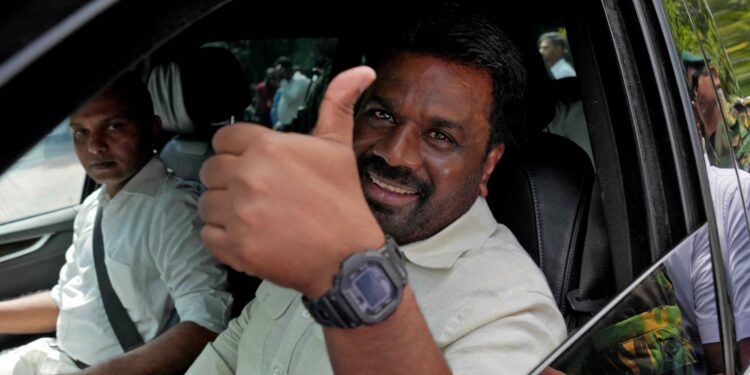Lagatar24 Desk
Colombo: The National People’s Power (NPP), led by President Anura Kumara Dissanayake, has achieved a decisive majority in Sri Lanka’s parliamentary elections, securing 107 seats and marking a historic shift in the nation’s political landscape. The victory grants Dissanayake greater legislative power to implement reforms aimed at poverty alleviation and economic recovery.
A Historic Mandate for Change
The NPP, a Marxist-leaning coalition, received almost 62% of the vote, translating to 6.8 million ballots cast in its favor. This victory follows Dissanayake’s presidential win in September, where he emerged as a political outsider challenging decades of family-dominated governance. The coalition’s victory signifies a critical turning point in Sri Lankan politics, as the NPP had only three parliamentary seats before this election.
Speaking after casting his vote, President Dissanayake remarked, “There is a change in Sri Lanka’s political culture that started in September, which must continue.”
Opposition and Election Outcomes
The main opposition, Samagi Jana Balawegaya (SJB), led by Sajith Premadasa, secured 28 seats with 18% of the vote, while the New Democratic Front, backed by former President Ranil Wickremesinghe, won just three seats. A total of 196 members were directly elected from 22 constituencies, with an additional 29 seats allocated proportionally.
Economic Recovery and IMF Challenges
Sri Lanka is gradually recovering from a severe 2022 economic crisis, aided by a $2.9 billion bailout from the International Monetary Fund (IMF). President Dissanayake’s agenda includes revisiting IMF terms to reduce income taxes and increase welfare funding for the economically vulnerable. However, concerns remain that renegotiating the IMF agreement could delay future financial disbursements and hinder the country’s ability to achieve a primary surplus target of 2.3% of GDP by 2025.
Celebrations Amid Economic Struggles
While the victory has been celebrated by NPP loyalists, Sri Lanka continues to grapple with high living costs and economic challenges. President Dissanayake’s administration aims to use this mandate to implement key reforms, including abolishing the executive presidency, contingent on securing a two-thirds majority in Parliament.







